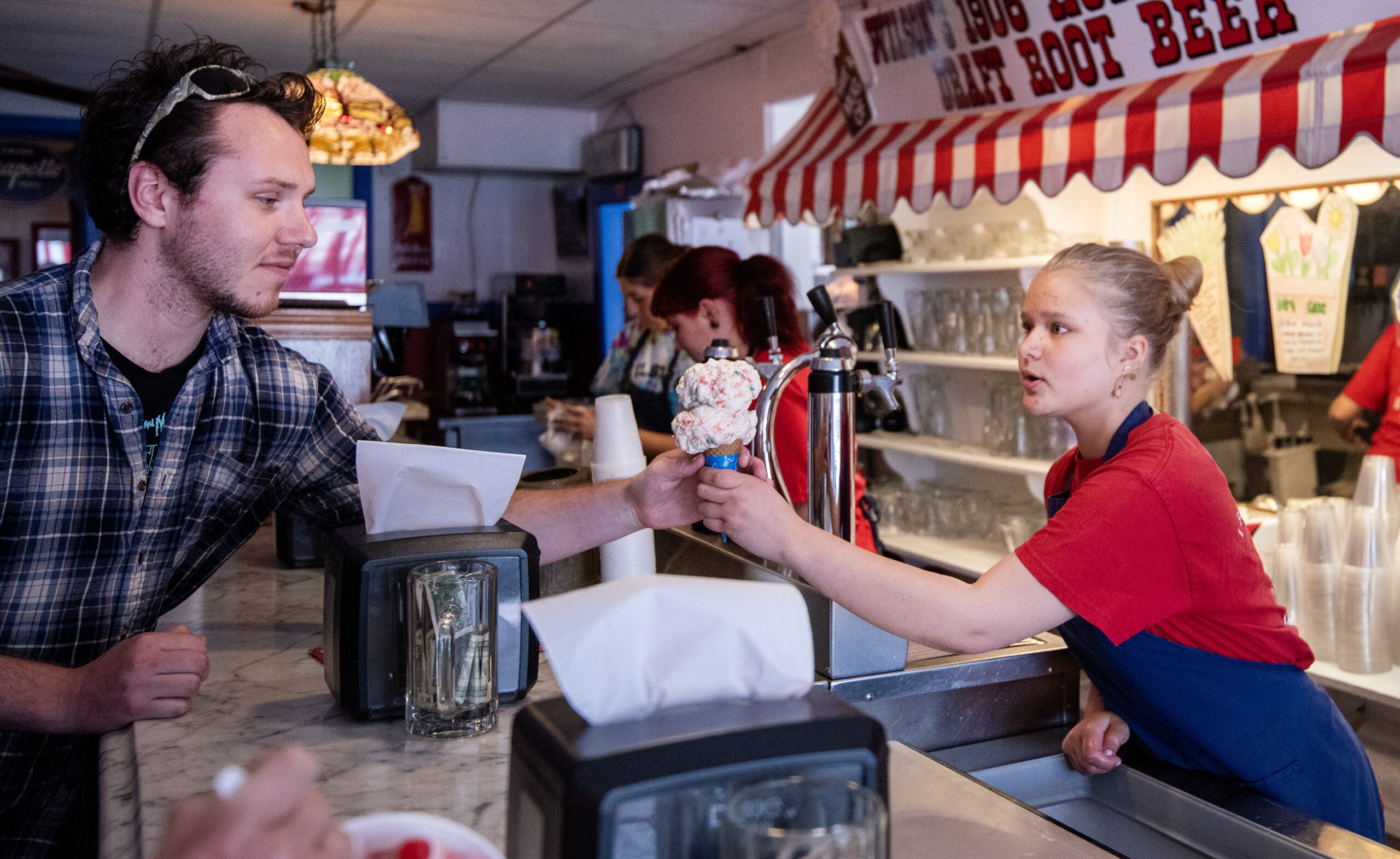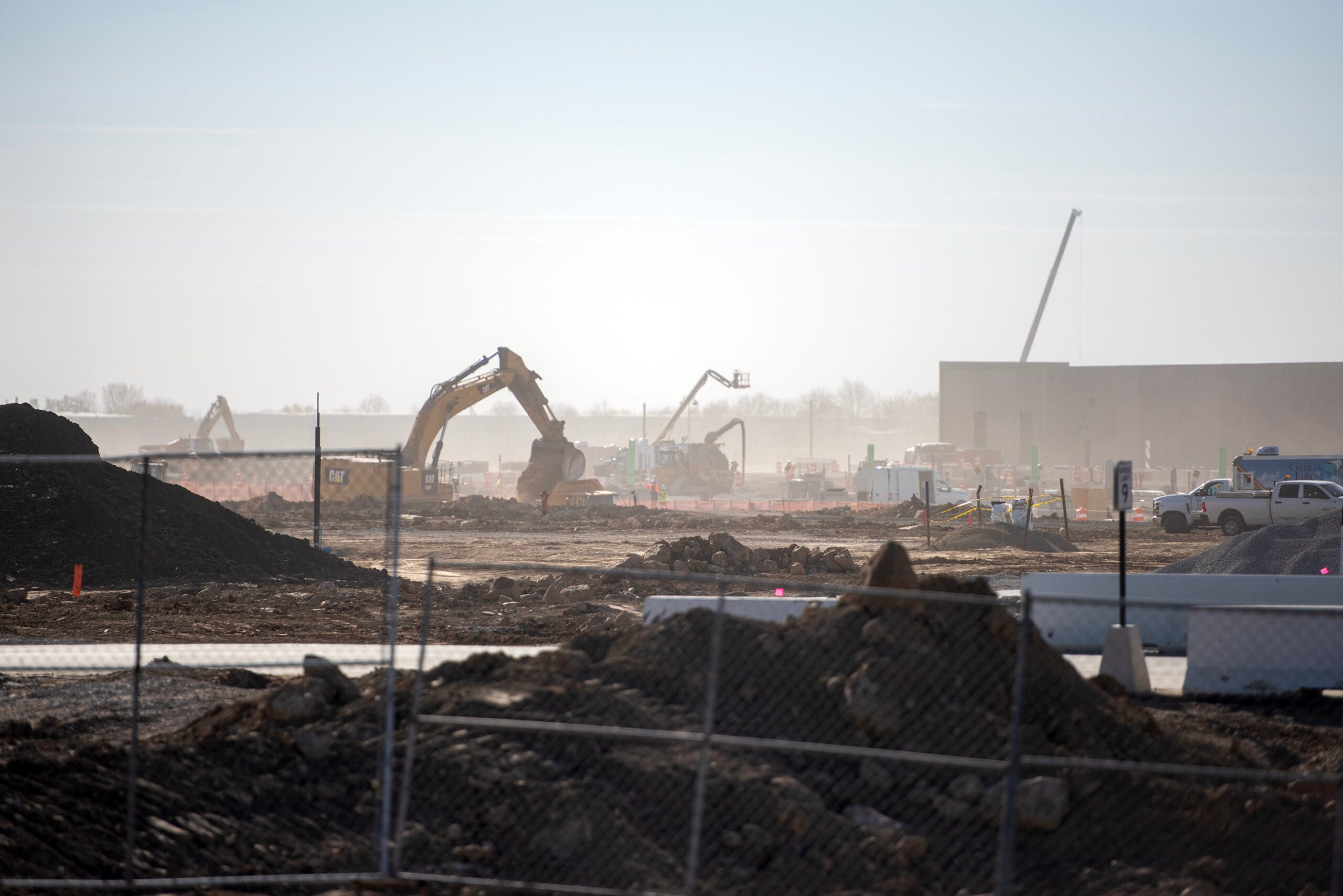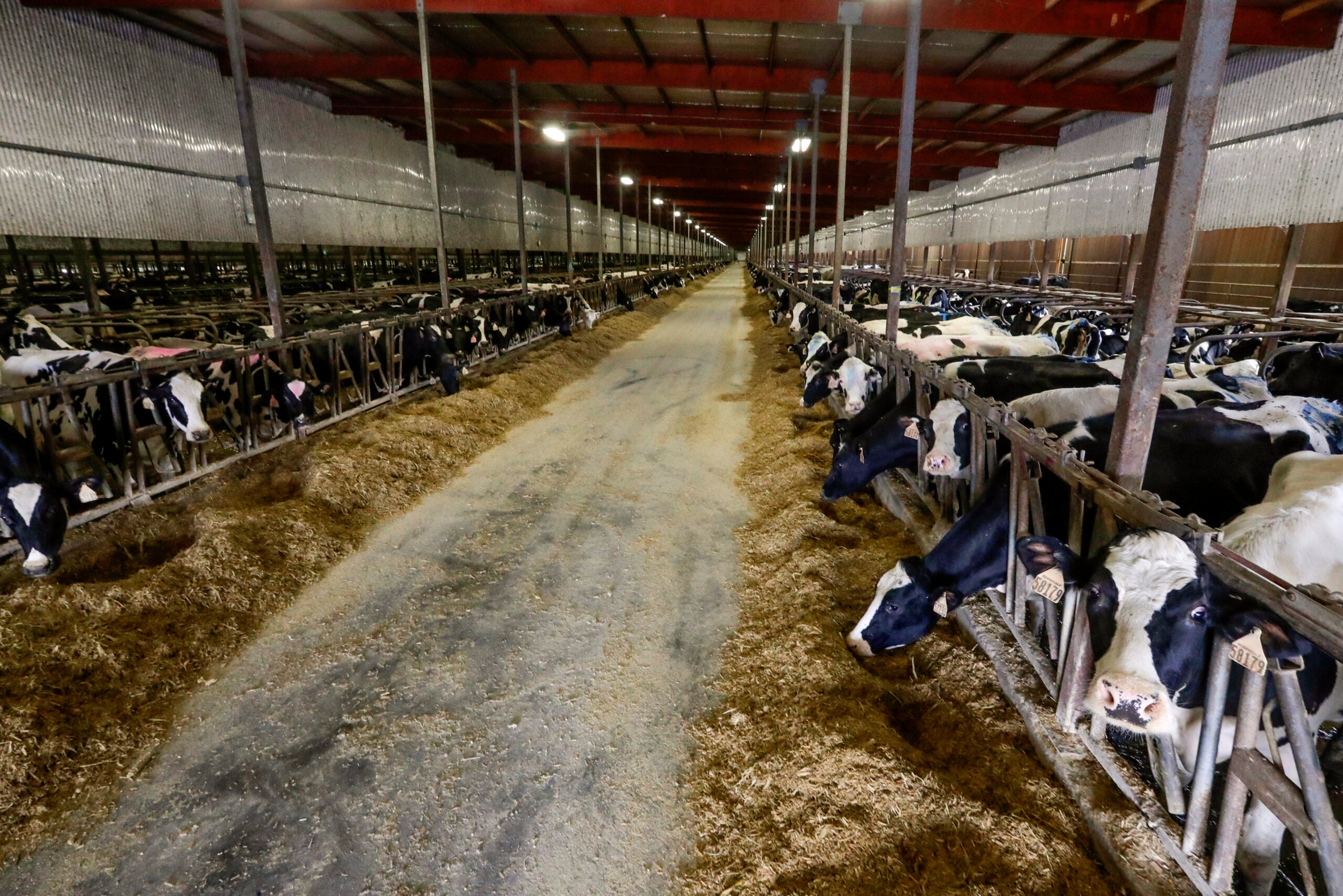High school sophomore McCartney Schwab spreads several dishes on a counter, scooping ice cream into each.
It’s her third summer working at Wilson’s Restaurant & Ice Cream Parlor in Door County’s village of Ephraim, which sits along Eagle Harbor on the eastern side of the bay of Green Bay.
Schwab said her co-workers, boss and passion for making ice cream sundaes is what keeps her coming back — but making some extra cash doesn’t hurt either.
News with a little more humanity
WPR’s “Wisconsin Today” newsletter keeps you connected to the state you love without feeling overwhelmed. No paywall. No agenda. No corporate filter.
“I’ve been able to save a lot of money,” she said. “It’s helped me pay for gas when I go driving and have the independence to pay for my own food if I want to go out with friends.”
Last weekend marked the ice cream parlor’s first weekend open of the summer season. Walking inside the century-old building is almost like stepping back in time. Teens take and prepare ice cream orders behind a counter, as oldies music pours out of a jukebox that still plays records.
Each summer, Wilson’s hires about 70 seasonal employees. Of those, roughly 20 to 25 are high school aged, according to owner Sarah Martin.
Martin, a former first grade teacher, said she loves giving teens their first job experience, helping them gain skills they’ll use later in life.
“A lot of people ask if I miss teaching, and I’m like, ‘I really don’t feel that far removed from it,’” She said. “It’s just a different type of teaching. Sometimes I feel more like the principal. I have to call parents and stuff like that in certain situations.”
More than 35,000 14- and 15-year-olds join the state’s workforce each year, according to work permit data from the state Department of Workforce Development. May and June are traditionally the months the department issues the most permits each year. Those months last year accounted for about 39 percent of all permits.
Wisconsin’s older teens, 16- to 19-year-olds, are also working or seeking jobs at higher rates than their peers nationally. Among that age group, DWD says 55.3 percent are either working or looking for work. That’s more than 18 percent higher than the national average.
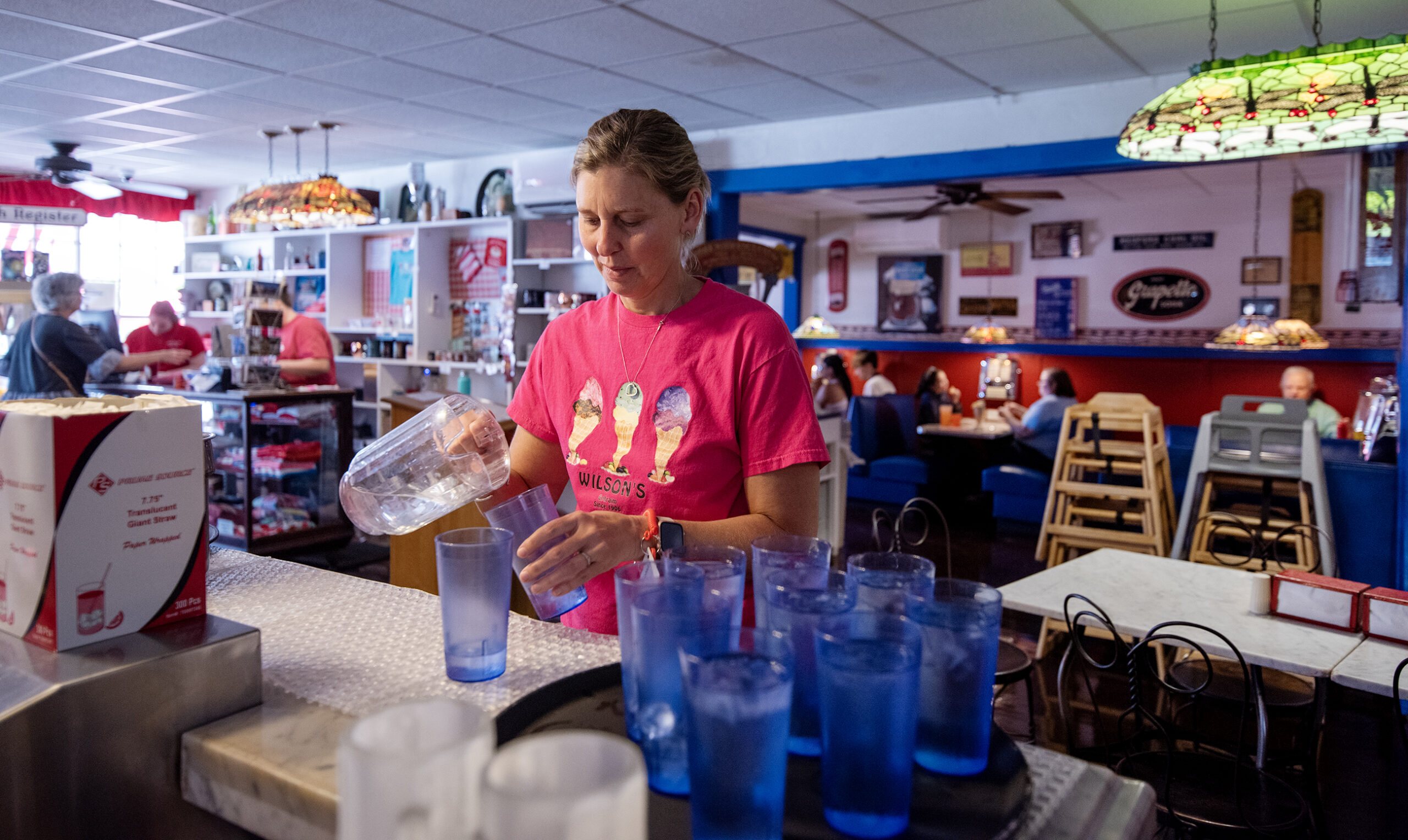
Even as teens have taken an increasingly important role in the state economy, some states, including Wisconsin, have tried to pass legislation critics say rolls back child labor protections. In 2023, Wisconsin Republicans introduced a bill to eliminate work permits for 14- and 15-year-olds. This year, they passed the bill on a party-line vote, but Democratic Gov. Tony Evers vetoed it.
Many of the teens joining Wisconsin’s labor force this summer will likely be working in restaurants. An estimated 1 in 3 Americans’ first job was in a restaurant, said Susan Quam, executive vice president of the Wisconsin Restaurant Association.
That’s why the association works with its member businesses to give them the resources to be good mentors to teens and comply with state and federal child labor laws, Quam said.
“We’re a place where kids learn those soft skills — how to show up on time, how to take care of a uniform, all those different entry level skills — so we want to make sure that we provide that safe space for them,” she said.
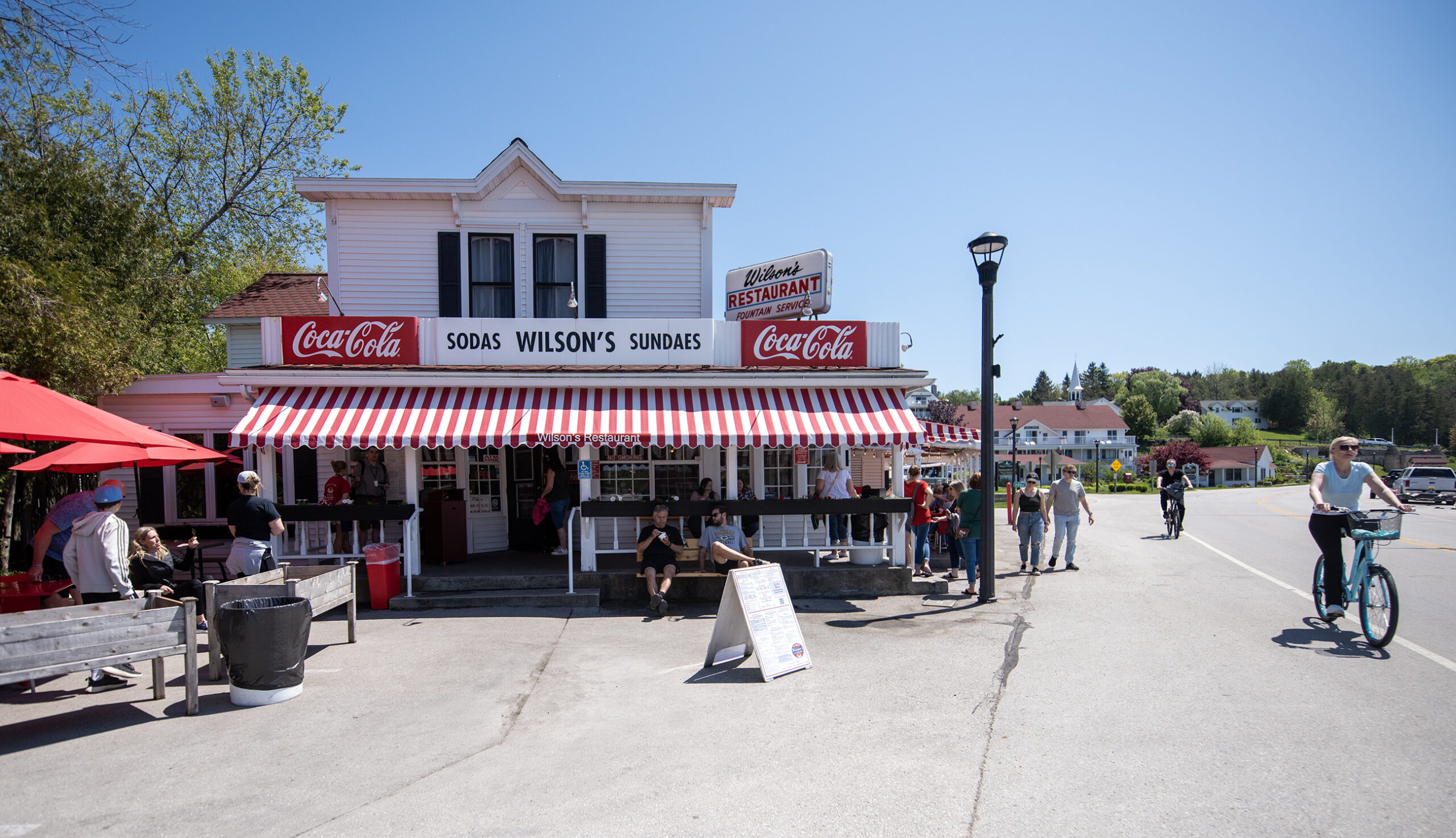
Child labor concerns aren’t just a thing of the past
Child labor was widespread in America during the Industrial Revolution. In the 1800s, it was common for children as young as 10 to work in factories, mines and farms. They often worked long hours in hazardous conditions for low wages.
In the early 1900s, efforts to regulate child labor began to gain momentum, culminating in the Fair Labor Standards Act in 1938. The law, signed by President Franklin Roosevelt, prohibited children under 14 from working in most industries, capped work days at three hours on school days until a teen turns 16, and prohibited hazardous work until 18 for most industries.
Even with more regulations than in past centuries, safety concerns around child labor today aren’t just a remnant of a bygone era. Last summer, Wisconsin made national headlines when a 16-year-old died from injuries sustained working at a northern Wisconsin sawmill. In September, the company was ordered to pay nearly $200,000 in fines for federal child labor violations.
From 2018 to 2022, Wisconsin had the second-most federal child labor law violations among its neighbors, averaging 99 per year, according to data from the U.S. Department of Labor. Illinois averaged 52.8 violations per year, Michigan averaged 260.4 and Minnesota averaged 39.6.
During that same period, the U.S. Department of Labor saw a 69 percent increase in children being illegally employed nationally. Last February, the agency announced new efforts to boost enforcement.
After trending downward from 2016 to 2018, state-level child labor complaints have been up in recent years, but remain lower than they were in 2015, according to DWD data.
The state received 96 complaints in 2015; 49 in 2016; 32 in 2017; 18 in 2018; 25 in 2019 and 2020; 42 in 2021; 80 in 2022 and 62 last year. So far this year, DWD has received 15 complaints.
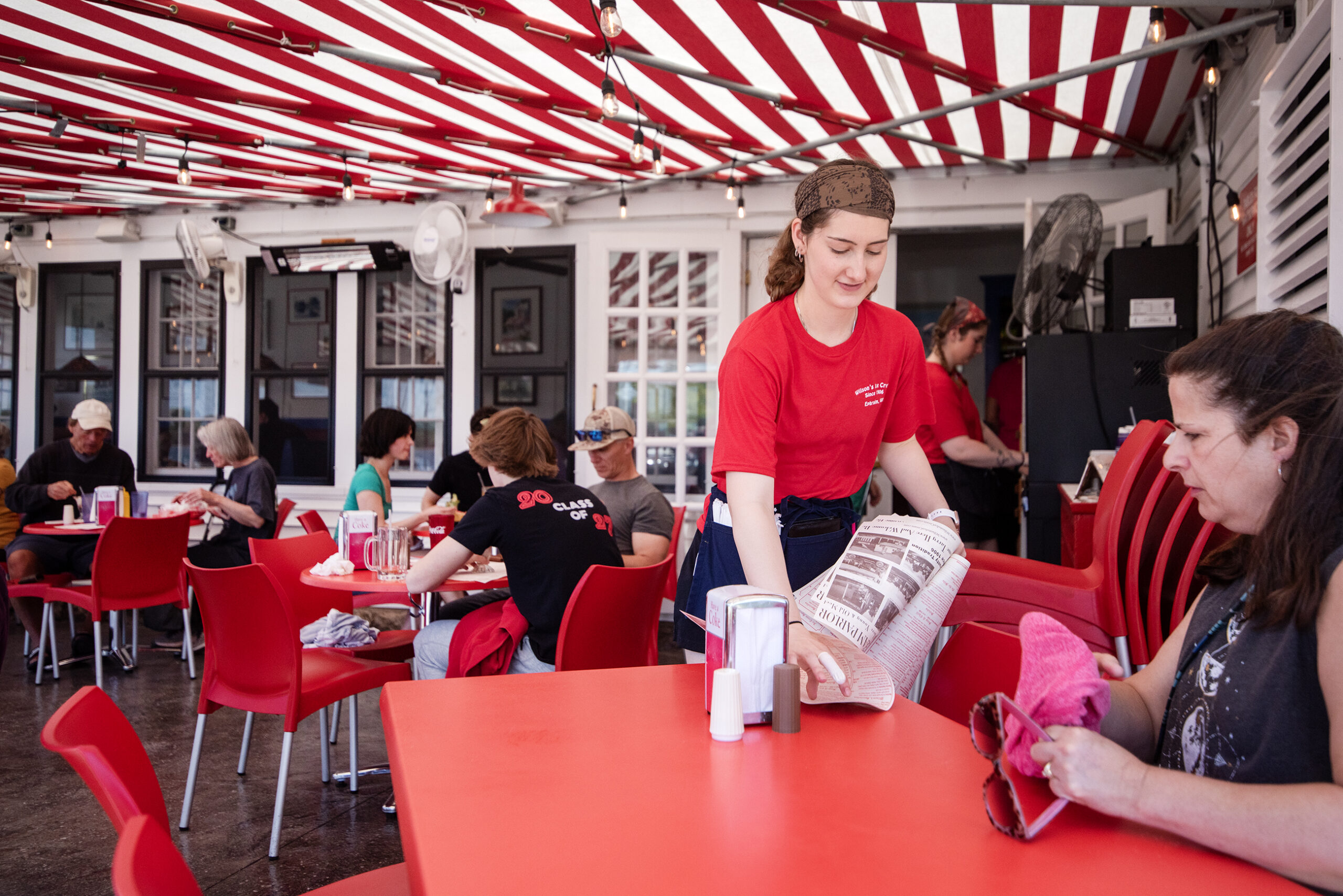
Matthew White, director of the Bureau of Investigations at DWD’s Equal Rights Division, said more companies are hiring teens due to the structural labor shortage in Wisconsin. The state has had more job openings than job seekers since 2021, and its unemployment rate has remained near record lows for more than a year.
“As you see the baby boomers retire, that importance isn’t diminished,” White said. “It is a critical issue, and it speaks to why we need to focus on making sure that the workplace is safe for teens.”
White said not every complaint means an employer was violating state child labor regulations. He attributed the rise since 2019 to the department becoming more aggressive in getting anonymous complaints, taking referrals from other agencies and looking for opportunities to do more outreach and have more discussion with employers.
Bill removing work permits for teens blocked in Wisconsin
In his veto message of the bill that would have removed work permits for 14- and 15-year-olds, Gov. Evers said he objected to “eliminating a process that ensures our kids are protected from employers that may exploit youth and inexperience or subject children to hazardous or illegal working conditions.”
But the bill’s supporters argued it would have sped up hiring by cutting red tape and making it easier for kids to work, without repealing workplace safety or school attendance standards.
“If a teenager wants a job, they should be able to apply to a job and start working,” said state Rep. Clint Moses, R-Menomonie, in testimony for a hearing on the bill. “They shouldn’t need approval by their school and state to obtain a job.”
Critics, like the state AFL-CIO labor organization, said the change would remove important oversight.
“What has happened in Wisconsin is unfortunately part of a larger trend across the nation to roll back child labor laws,” said Stephanie Bloomingdale, president for the Wisconsin AFL-CIO “We need to make sure that we are protecting our kids.”
While the proposal had backing from the National Federation of Independent Business and Wisconsin Independent Businesses Inc., not all business groups were unanimous in their support. The Wisconsin Restaurant Association took a neutral lobbying position on the work permit bill.
Quam said the 2017 law repealing work permits for 16- and 17-year-olds, signed into law by Republican former Gov. Scott Walker, has streamlined hiring. But restaurants feared the bill for younger teens would have exposed them to legal liability.
She said younger teen workers are subject to strict federal restrictions on the hours they can work and the equipment they can use, whereas 16- and 17-year-olds are less limited. The work permit process for 14- and 15-year-olds, she said, helps protect restaurants because it ensures parents and employers review the restrictions they need to follow.
“We just had concerns that it was going to take away a safeguard for everybody,” she said.
Beyond the educational component of the permit process, part of the revenue generated by work permits has paid for one full-time equal rights officer, tasked with investigating labor law violations. White says the DWD has three full-time officials investigating those violations.
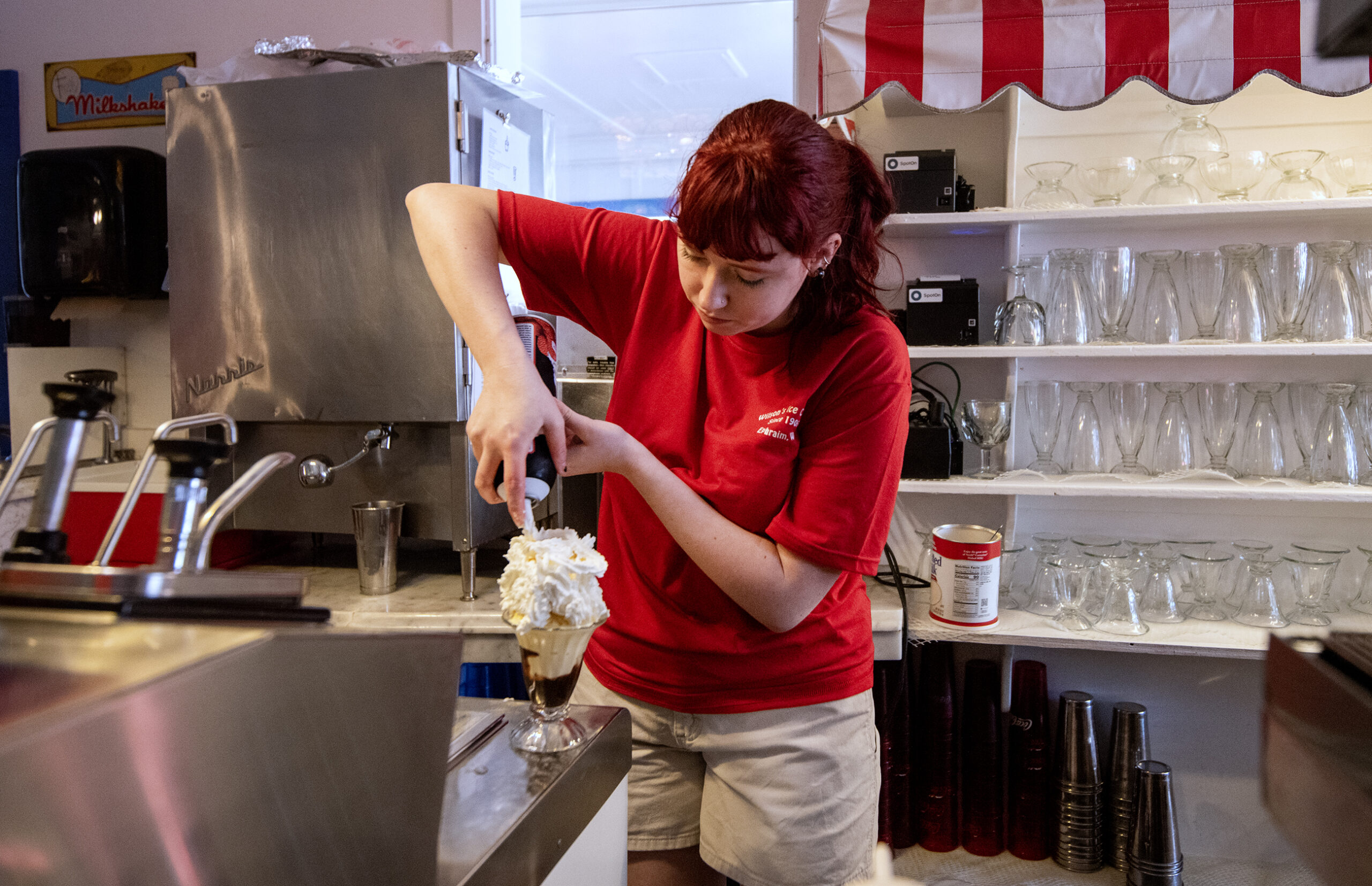
Summer hiring a mixed bag
Employers across the state are in the midst of hiring their workforce for the summer tourism months.
In the restaurant industry, overall recruitment was better this year than last year, Quam said. Restaurants hope the better recruitment environment continues as they ramp up in May and June, with the goal of being fully staffed by the July 4 holiday.
“Everybody’s still scrambling pretty hard to find and fill their summer workforce,” Quam said. “Even with the great (labor force) participation rate compared to the country, it’s still not meeting the needs we have in our tourism months.”
At Wilson’s Restaurant & Ice Cream Parlor, Martin said hiring has been a challenge in recent years. But this year, she had recruitment help from her two teenage sons who are working at the business and have enlisted their friends.
“The last few years have definitely been more challenging than they were in the past,” she said. “This year, I feel pretty lucky.”
For her youngest son, Chase, it’ll be his first summer working at the ice cream parlor. He said he’s excited to help after growing up around the business.
“It’s gonna be fun,” he said. “A couple of my friends are working here, too.”
While some have had an easier time with hiring this year, finding summer talent is still a challenge for many Northwoods businesses, said Krystal Westfahl, president and chief executive of the Let’s Minocqua Visitors Bureau.
“It seems that we are losing people from the workforce faster than we’re gaining them,” she said. “As a tourism destination, we need a lot of summer help.”
Stevens Point job fair tries to address area workforce needs
At an April job fair hosted by the Boys & Girls Club of Portage County, tables filled a gymnasium at the club’s facility. Students between 12 and 18 roamed the room, stopping to speak with employers.
High school junior Eden Ewton attended the career fair, looking for job shadowing and volunteering opportunities. Last summer, she worked in a summer camp kitchen. She said she wanted to get hands-on experience that would prepare her for a possible career working with animals.
“In a perfect world, I would want to volunteer (or) job shadow at an animal rehab facility,” she said. “The Humane Society also sounds interesting.”
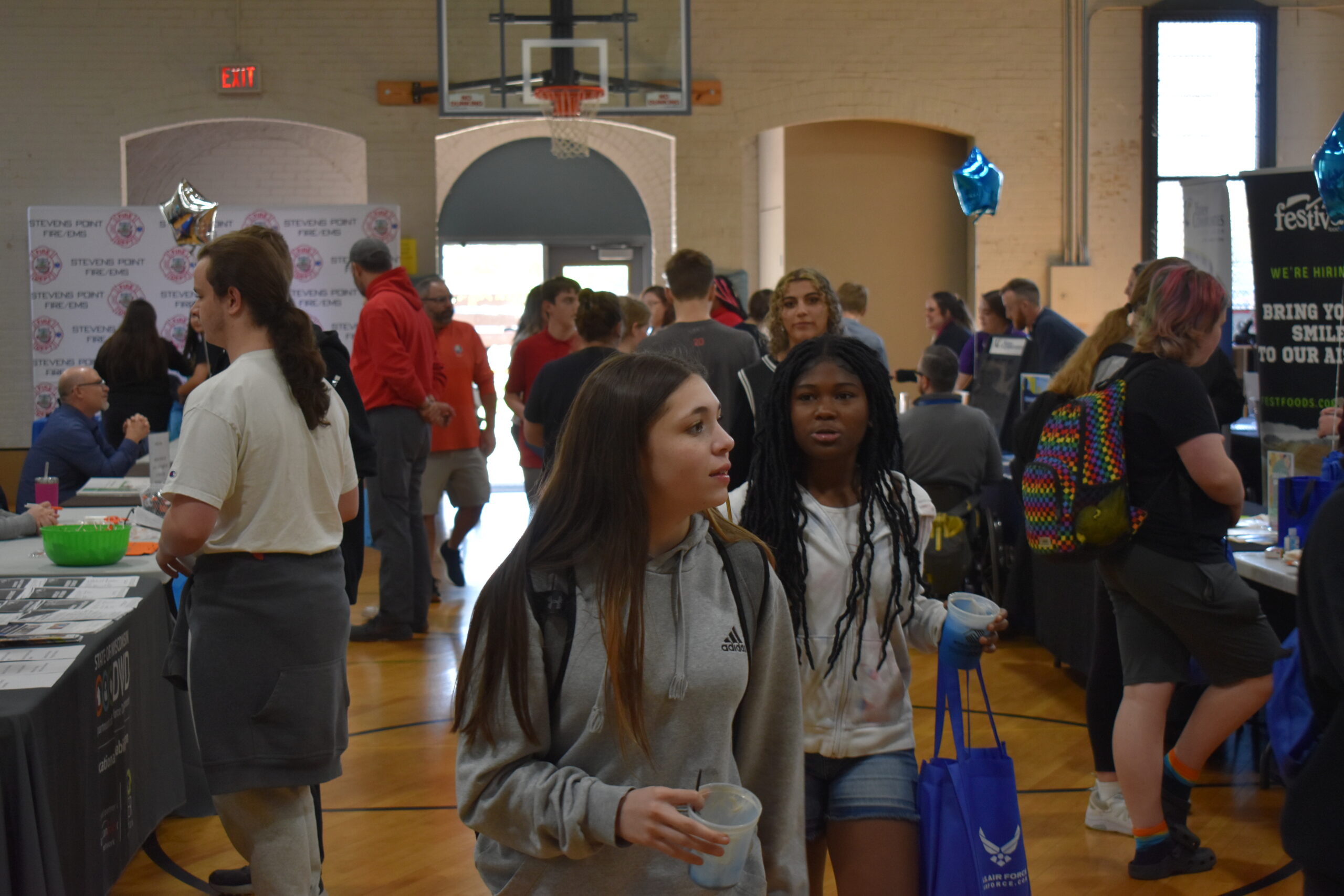
Kevin Quevillon, CEO of the Boys & Girls Club of Portage County, said this year’s event was the third job fair the club has hosted. The idea was developed based on feedback from the region’s business community.
“We, as a youth organization, really need to prepare kids for the workforce more and maybe better,” Quevillon said. “We heard that loud and clear.”
Beyond the career fairs, the club also offers job training and interview preparation to local high school students, as well as job opportunities to area teens and University of Wisconsin-Stevens Point students, Quevillon said.
At the job fair, Nick Ockwig, human resource manager at Holiday Inn Hotel and Convention Center in Stevens Point, said his company only hires people 16 or older, but has a variety of openings in the summer tourism season.
Ockwig said he always hopes to find workers with good work ethic and who may find a career in the hospitality industry, but it can often be hit or miss.
“You hope you find the right one, but it’s like that with adults, too,” he said. “That doesn’t mean just because you’re an adult, you’re gonna do the right job or do the right thing.”
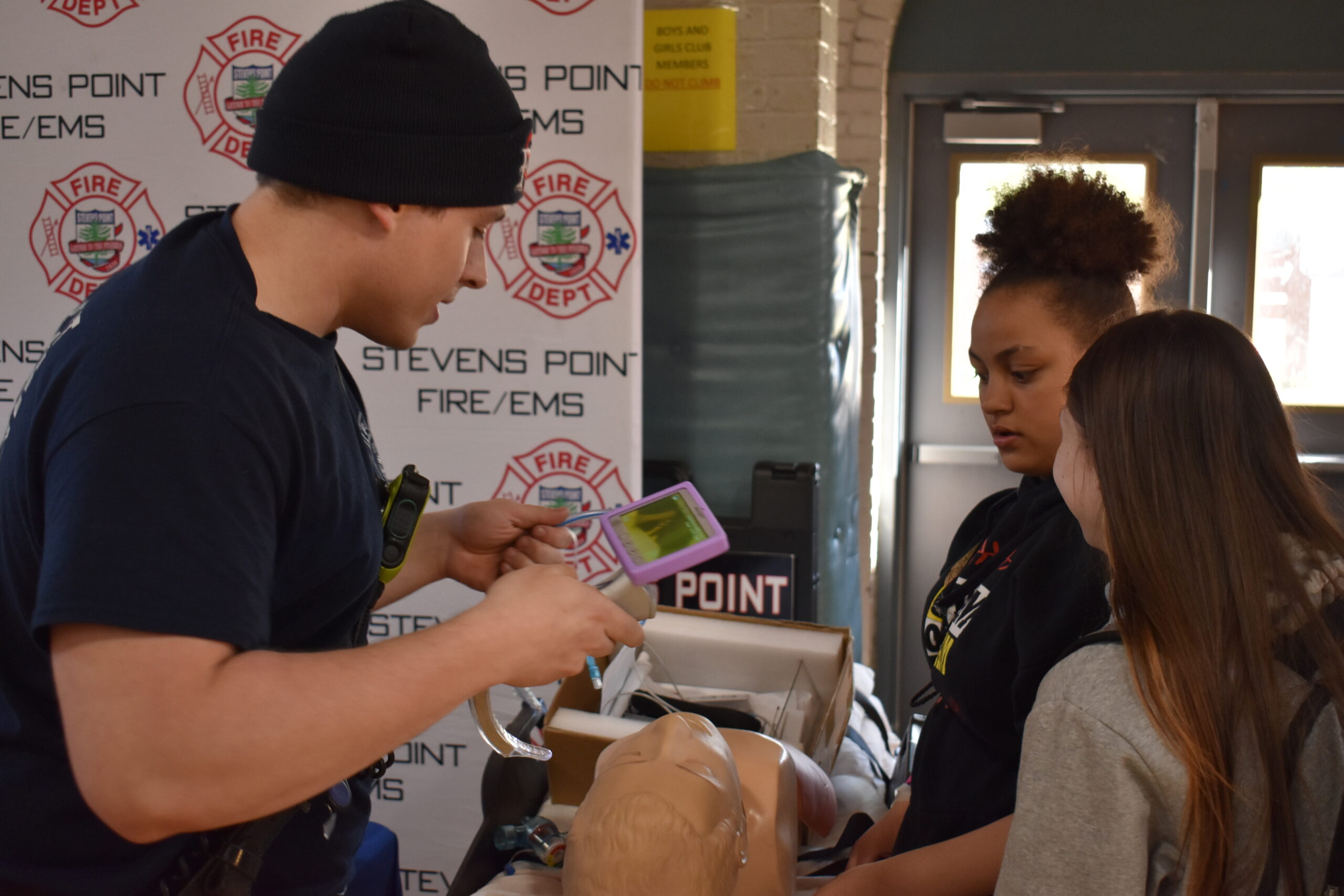
Students weigh in on the value of work
Teens and employers say work experience is important for both teens’ development and for local communities’ economic health.
Schwab at Wilson’s in Door County said she’s learned valuable life lessons while spending her summers working.
“I feel like it’s important to work,” she said. “It helps you build communication skills, and it can help you earn some money for what you do later in life.”
Having a job can also provide social benefits, said 14-year-old Marin Gransee. It’s Gransee’s first summer at Wilson’s, but she previously helped out at a separate Door County restaurant owned by her family.
“I’ve always liked working. I don’t like just sitting around,” Gransee said. “It’s more fun just doing stuff and being with people. I’m pretty social, so I find it actually really fun.”
Wisconsin Public Radio, © Copyright 2026, Board of Regents of the University of Wisconsin System and Wisconsin Educational Communications Board.

